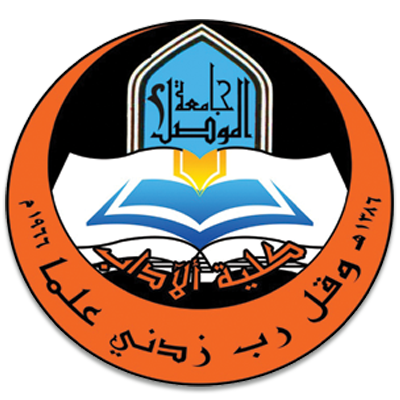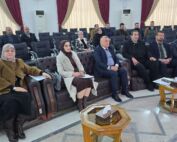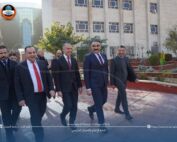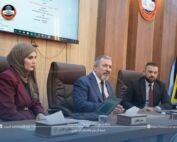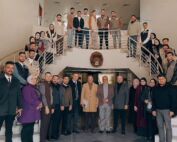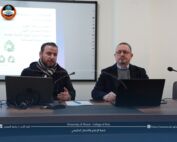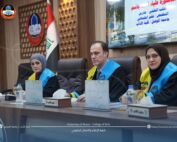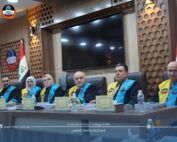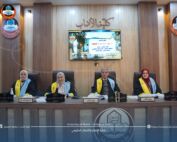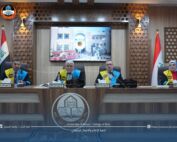15 July، 2023
Sociology Department
About the department
The Department was established in 1985-1986, under the name “Social Service Section” and then changed to Sociology Department in 1994. The study in the Department is based on sociology and its issues. As well as societal phenomena and problems, the department’s teachers, postgraduate students and bachelor’s degree carry out a series of field research and theoretical studies in sociology, anthropology and social service.
The Department seeks to prepare qualified social researchers to study, analyze and solve problems and social phenomena, as well as to prepare qualified specialized academics with a bachelor’s degree to work in state institutions such as the Ministry of Labour and Social Affairs and the Ministry of Justice.
The academic year 1996-1997 saw the opening of postgraduate/master’s studies and the opening of PhD. studies in the academic year 2018-2019, and in response to the requirements of the cultural stage witnessed in Countries and the world, the Diploma in Peacebuilding was opened for the academic year 2019-2020.
Address by Mr. Head of Department
Prof. Dr. Firas Abbas Fadil Al Bayati
The Department of Sociology is one of the scientific departments whose scientific and research functions are inspired by the uterus of the Faculty of Arts of Mosul University since 1985-1986, under the name “Social Service Department” and then changed the name to the Department of Sociology in 1994. Studying sociology in its theoretical and field formats is a lofty objective of the Department’s objectives to build effective partnerships with society by developing highly competent sociology cadres. It should be noted that the Department of Sociology includes members of a highly experienced, competent and diverse teaching body in research, education and community service who work in a harmonious team spirit, This allows students to build a solid knowledge base and acquire high-end technical skills to serve the community in various fields.
The process of promoting scientific research in the humanities guaranteed by the Department of Sociology to meet the requirements of the labour market, as well as supporting research with future and applied visions, solving social problems and reducing negative phenomena in society. We do not exaggerate that today’s sociology outputs value and give greater confidence and reassurance to the efforts of the State, the higher education sector, scientific research and the University to achieve a development that will advance society and achieve the desired development.
These outputs, in addition to the above contributed by a selection of professors in various disciplines, worked with dedication to serve science, student, university and community. To complement this successful march, it is increasingly felt that more efforts should be made to achieve quality education, training and research, as well as good governance to ensure a climate of positive interaction and effective communication.
The department’s vision, Message and aims:
Sociology Department
About the department
The Department was established in 1985-1986, under the name “Social Service Section” and then changed to Sociology Department in 1994. The study in the Department is based on sociology and its issues. As well as societal phenomena and problems, the department’s teachers, postgraduate students and bachelor’s degree carry out a series of field research and theoretical studies in sociology, anthropology and social service.
The Department seeks to prepare qualified social researchers to study, analyze and solve problems and social phenomena, as well as to prepare qualified specialized academics with a bachelor’s degree to work in state institutions such as the Ministry of Labour and Social Affairs and the Ministry of Justice.
The academic year 1996-1997 saw the opening of postgraduate/master’s studies and the opening of PhD. studies in the academic year 2018-2019, and in response to the requirements of the cultural stage witnessed in Countries and the world, the Diploma in Peacebuilding was opened for the academic year 2019-2020.
Address by Mr. Head of Department
Prof. Dr. Firas Abbas Fadil Al Bayati
The Department of Sociology is one of the scientific departments whose scientific and research functions are inspired by the uterus of the Faculty of Arts of Mosul University since 1985-1986, under the name “Social Service Department” and then changed the name to the Department of Sociology in 1994. Studying sociology in its theoretical and field formats is a lofty objective of the Department’s objectives to build effective partnerships with society by developing highly competent sociology cadres. It should be noted that the Department of Sociology includes members of a highly experienced, competent and diverse teaching body in research, education and community service who work in a harmonious team spirit, This allows students to build a solid knowledge base and acquire high-end technical skills to serve the community in various fields.
The process of promoting scientific research in the humanities guaranteed by the Department of Sociology to meet the requirements of the labour market, as well as supporting research with future and applied visions, solving social problems and reducing negative phenomena in society. We do not exaggerate that today’s sociology outputs value and give greater confidence and reassurance to the efforts of the State, the higher education sector, scientific research and the University to achieve a development that will advance society and achieve the desired development.
These outputs, in addition to the above contributed by a selection of professors in various disciplines, worked with dedication to serve science, student, university and community. To complement this successful march, it is increasingly felt that more efforts should be made to achieve quality education, training and research, as well as good governance to ensure a climate of positive interaction and effective communication.
The department’s vision, Message and aims:
Vision:
The department seeks to achieve leadership and excellence in the fields of education and the production and dissemination of social knowledge, and to serve the community with all its institutions and components to reach a advanced position among the sections of the meeting in Iraqi universities.
Message:
Interest in providing advanced social programmes in various areas of social life in accordance with scientific standards with the aim of qualifying competent graduates who contribute to the scientific, cognitive, economic, social and political development of society, adherence to the system of social and spiritual values, support for human rights, preservation of society’s civilization and heritage, optimal employment of technology, and the pursuit of research that contributes to the service of social issues and the provision of social consultations to raise the level and efficiency of formal and informal society institutions.
Aims :
1.Promote scientific research in the social sciences to meet the requirements of the labour market and encourage research related to development plans, obstacles and problems of Iraqi society.
- Continuous development in the field of study at the level of preliminary and higher studies in accordance with cognitive and methodological developments.
3.Promote the religious, social and national values of university youth and develop a spirit of cooperation, social responsibility and awareness among students.
- Participating in the service of the community in direct and continuous interaction with its institutions and providing scientific consultations.
5.Provide society and its institutions with the necessary social personnel specialized in all fields.
A list of teachers who have been the head of the department since the establishment to now
| series | Name | Received date | Exemption date |
| 1 | Prof.Dr. Sattam Hamad al-Jubouri | 1986 | 1992 |
| 2 | Prof.Dr. Hamid Kordi Al-Farahi | 1993 | 1996 |
| 3 | Ass.Prof. Mufaq Waisi Mahmoud | 1997 | 2001 |
| 4 | Prof.Dr. Sabah Ahmad Al-Najjar | 2002 | 2004 |
| 5 | Ass.Prof. Mufaq Waisi Mahmoud | 2004 | 2008 |
| 6 | Ass.Prof.Dr.Waad Ibrahim Khalil | 2009 | 2011 |
| 7 | Prof.Dr. Harith Hazim Ayoob | 2012 | 2015 |
| 8 | Ass.Prof.Dr. Hassan Jasim Rashid | 2015 | 2019 |
| 9 | Prof.Dr. Shafiq Ibrahim Saleh | 2019 | 2023 |
| 10 | Prof.Dr. Firas Abbas Fadil | 2023 | still |
Why we study sociology
Studying sociology in its theoretical and applied facets is beneficial to society because it relates to many other fields and explains human behaviors and attitudes against societal variables. This has made sociology the focus of many scientists and intellectuals, making sociology in its various branches of society of great importance within universities and scientific institutions.
Statistics on the number of graduates of the meeting department for the academic year 2022-2023
Preliminary studies: 88 students
PhD sociology: – 11 students
Master of Sociology: – 10 students
Community Peace Diploma: – 11 students
Diploma in Peacebuilding: – 13 students
Certificates granted
Sociology Department grants graduates bachelor’s degrees in sociology, master’s degree in sociology, doctoral philosophy in sociology, diploma in community peace, diploma in peacebuilding, master’s degree in peacebuilding
Basic materials prescribed in the Department of Sociology
All subjects are important and effective in the study of sociology, divided into the stages of primary and higher studies as shown: –
- Preliminary Studies
Stage 1
| Series | Subject |
| 1 | Introduction to sociology |
| 2 | Social Service Entrance |
| 3 | Introduction of anthropology |
| 4 | Concepts in English |
| 5 | Psychology |
| 6 | Principles of philosophy |
| 7 | Human rights and democracy |
| 8 | Arabic Language |
| 9 | Computers |
Stage 2.
| Series | Subject |
| 1 | Social anthropology |
| 2 | Social Problems |
| 3 | Methods of Social Research |
| 4 | Economic sociology |
| 5 | Educational sociology |
| 6 | Rural and urban sociology |
| 7 | Social psychology |
| 8 | English language texts |
| 9 | Iraqi Society |
Stage 3.
| Series | Subject |
| 1 | Social Statistics |
| 2 | Social Research Design |
| 3 | Family sociology |
| 4 | Women’s sociology |
| 5 | Cultural sociology |
| 6 | Criminology |
| 7 | Population sociology |
| 8 | Social change in English |
| 9 | English Language |
| 10 | Contemporary Social Thought |
Stage 4.
| Series | Subject |
| 1 | Social Theories |
| 2 | Planning and development |
| 3 | Crisis sociology |
| 4 | Religious sociology |
| 5 | Political sociology |
| 6 | Organization sociology |
| 7 | Legal sociology |
| 8 | English Language |
| 9 | Search Graduation |
- Scientific Course for Postgraduate Studies
Postgraduate studies in the Department of Sociology rely on various scientific materials in various fields of sociology. These scientific materials are
- Master’s Degree Course
| Series | Subject for the first course |
| 1 | Social Change in English |
| 2 | Social Problems |
| 3 | Political sociology |
| 4 | Social theories |
| 5 | Educational sociology |
| 6 | Methods and Methods of Research |
| Series | Subject for the second course |
| 1 | Social Development in English |
| 2 | Sociology Type |
| 3 | Criminal sociology |
| 4 | Contemporary social issues |
| 5 | Medical sociology |
| 6 | Social Statistic |
| 7 | Seminar |
- PhD. Scientific Course
| Series | Subject For the first course |
| 1 | Culture and globalization |
| 2 | Diversity Sociology |
| 3 | Contemporary social theories |
| 4 | Knowledge Society |
| 5 | Sociological Social Movements |
| 6 | Contemporary social thought in English |
| Series | Subject For the second course |
| 1 | Advanced Social Survey |
| 2 | Iraqi Society |
| 3 | Organization sociology |
| 4 | Sustainable human development |
| 5 | Critical sociology |
| 6 | Social Change in English |
- Scientific Course of the Diploma of Community Peace
| Series | Subject For the first course |
| 1 | Community Development and Security |
| 2 | English Language |
| 3 | Security Psychology |
| 4 | Community rehabilitation and peacebuilding |
| 5 | Advanced Social Survey |
| 6 | Methods of community peace research |
| Series | Subject For the second course |
| 1 | Studies in Contemporary Islamic Thought |
| 2 | Peacebuilding |
| 3 | Intellectual Security |
| 4 | Moderation and Moderation |
| 5 | Communicative behaviors and community peace |
| 6 | Community Peace |
- Scientific course for the Peacebuilding Diploma
| Series | Subject For the first course |
| 1 | Peace psychology |
| 2 | Peace and Gender |
| 3 | English for Peace Workers |
| 4 | Diversity management and peacebuilding |
| 5 | Cultures of Peace |
| 6 | International humanitarian law |
| 7 | Concepts and theories of peace |
| Series | Subject For the second course |
| 1 | Crisis management and negotiation art |
| 2 | Concepts and theories of conflict peace processes and the responsibility to protect |
| 3 | Peace and the environment |
| 4 | Introduction to Peace and Applied Conflict Studies |
| 5 | Practical methods in peacebuilding and conflict transformation |
| 6 | Peace sociology |
| 7 | Research curricula in peace studies |
Certificate and general accurate and specialization of the teaching staff of the Department of Sociology
| Series | Quadruple name and surname | Scientific Title | Certificate | General and accurate specialization |
| 1 | Khalil Mohamed Hussein | Professor | sociology | Social organization |
| 2 | Harith Hazim Ayoob | Professor | sociology | Development sociology |
| 3 | Shafiq Ibrahim Saleh | Professor | sociology | Knowledge sociology |
| 4 | Nadia Sabah Mahmoud | Professor | sociology | Urban sociology |
| 5 | Firas Abbas Fadil | Professor | sociology | Population sociology |
| 6 | Harith Ali Hassan | Professor | sociology | Anthropology |
| 7 | Faiz Muhammad Daood | Professor | sociology | Socio-economic science |
| 8 | Shalal Hamid Suleiman | Ass. Professor | sociology | Social Thinking |
| 9 | Hassan Jasim Rashid | Ass. Professor | sociology | Political sociology |
| 10 | Ahmed Abdulaziz | Ass. Professor | sociology | Criminal sociology |
| 11 | Khaled Mahmood Hami | Ass. Professor | sociology | Social psychology |
| 12 | Mohamed Mahmood Ahmed | Ass. Professor | sociology | Sociology Family |
| 13 | Basima Fares Mohammed | Ass. Professor | sociology | Social Service |
| 14 | Hatem Younis Mahmood | Ass. Professor | sociology | Family sociology |
| 15 | Inas Mohamed Aziz | Ass. Professor | sociology | Social psychology |
| 16 | Najla Adel Hamid | Ass. Professor | sociology | Development sociology |
| 17 | Abtihal Abdul Jawad Kazim | Ass. Professor | sociology | Social psychology |
| 18 | Inas Mahmood Abdallah | Ass. Professor | sociology | Sociology Communication |
| 19 | Iman Hamadi Rajab | Ass. Professor | sociology | Political sociology |
| 20 | Reem Ayub Mohammed | Ass. Professor | sociology | Social Thinking |
| 21 | Nibal Fawzi Mahmoud | Ass. Professor | sociology | Social Problems |
| 22 | Youssef Hamid Mohamed | Ass. Professor | sociology | Urban sociology |
| 23 | Mona Shakir Mohammed | Ass. Professor | sociology | Social Service |
| 24 | Dalia Tariq Abdul Fatah | Ass. Professor | sociology | Organization sociology |
| 25 | Reem Abdulwaab Ismail | Ass. Professor | sociology | Social Problems |
| 26 | Imad Ismail Jameel | Lecturer Dr. | sociology | Criminal sociology |
| 27 | Iman Abdulwahab Musa | Lecturer Dr. | sociology | Social Problems |
| 28 | Hind Abdullah Ahmed | Lecturer Dr. | sociology | Religious sociology |
| 29 | Muhammad thanoon Zino | Lecturer Dr. | sociology | Political sociology |
| 30 | Ahmed Yosif Ahmed | Lecturer | sociology | Criminal sociology |
| 31 | Alia Ahmed Jassim | Lecturer | sociology | Social Change |
| 32 | Nasma Mahmoud Salem | Lecturer | sociology | Women’s sociology |
| 33 | Noora Majeed Ali | Ass.Lecturer | sociology | Children’s sociology |
| 34 | Ghada Ali Said | Ass.Lecturer | sociology | Educational sociology |
| 35 | Noor Yahya Yosif | Ass.Lecturer | sociology | Organization sociology |
| 36 | Radwan Ajeel Abdul Ghani | Ass.Lecturer | sociology | Political sociology |
| 37 | Raghad Issam Muhammad ali | Ass.Lecturer | English Language | Applied Linguistics |
| 38 | Hind Ziad Mohammed | Ass.Lecturer | sociology | Women’s sociology |
| 39 | Hussein Ali Haji | Ass.Lecturer | sociology | Political sociology |
| 40 | Abdulkader Ismail Khalil | Ass.Lecturer | sociology | Economic sociology |
| 41 | Noor Taha Salem | Ass.Lecturer | sociology | Social psychology |
| 42 | Raghd Thaeer | Ass.Lecturer | sociology | Population sociology |
